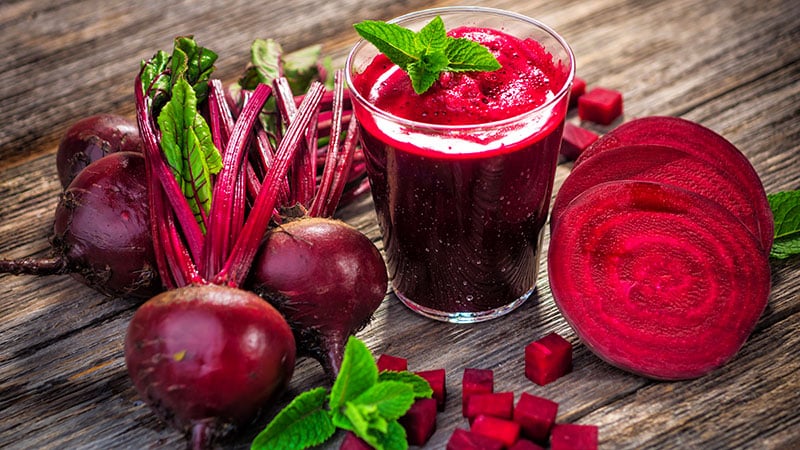Dietary Nitrates Prevent Contrast-Induced Nephropathy in ACS Patients
Core Concepts
Dietary inorganic nitrates effectively reduce contrast-induced nephropathy in ACS patients.
Abstract
The NITRATE-CIN Study presented by Dr. Dan Jones at the ESC Congress 2023 in Amsterdam showcased the benefits of dietary inorganic nitrates in preventing contrast-induced nephropathy (CIN) in non-ST segment elevation myocardial infarction acute coronary syndrome (ACS) patients. The study highlighted a significant reduction in CIN, periprocedural myocardial infarction, and improved renal function with the use of dietary nitrates. The potential implications of this study in reducing complications of coronary angiography were discussed, emphasizing the need for further research and development of commercial products for wider use.
Key Highlights:
Dietary inorganic nitrates show promise in preventing CIN.
Reduction in periprocedural myocardial infarction and improved renal function.
Significant decrease in major adverse cardiovascular and kidney events.
Potential benefits of dietary nitrates in various health aspects.
Plans for larger multicenter trials and commercial product development.
Dietary Nitrates Reduce Contrast-Induced Nephropathy in ACS
Stats
"In the NITRATE-CIN Study, non-ST segment elevation myocardial infarction acute coronary syndrome (ACS) patients at risk of renal injury from coronary angiography who received dietary inorganic nitrates had a 70% reduction in CIN compared with those given placebo."
"Results showed that this primary CIN endpoint was reduced significantly from 30% in the placebo arm to 9.1% in the nitrate group, a 70% relative risk reduction (P < .0001)."
"Rates of procedural MI, a prespecified secondary endpoint, were reduced from 12.5% to 4.1% in those on inorganic nitrates (P = .003)."
Quotes
"Currently, aside from intravenous hydration, there is no proven treatment that reduces contrast-induced nephropathy." - Dr. Dan Jones
"We're all going to get on beet juice after this." - Dr. Roxanna Mehran
"There appears to be many benefits of dietary nitrates, and the one thing we can do at this time is to encourage people to increase their dietary nitrate consumption by eating large quantities of green leafy vegetables and beetroot." - Dr. Dan Jones
Key Insights Distilled From
by Sue Hughes at www.medscape.com 08-29-2023
https://www.medscape.com/viewarticle/995956
Deeper Inquiries
What are the potential implications of dietary nitrates in preventing other health conditions?
The study on dietary nitrates in preventing contrast-induced nephropathy (CIN) in acute coronary syndrome (ACS) patients suggests that there could be broader implications for the use of dietary nitrates in preventing other health conditions. Dietary nitrates have been shown to potentially lower blood pressure, lower cholesterol levels, prevent stent restenosis, and even increase aerobic capacity in athletes. These findings indicate that dietary nitrates may have a multifaceted impact on cardiovascular health beyond just preventing CIN. Additionally, the study's results on major adverse cardiovascular and kidney events at 1 year suggest a sustained benefit in protecting the kidney and reducing cardiovascular events, indicating a potential role for dietary nitrates in overall cardiovascular risk reduction.
Is there any concern about the long-term effects or side effects of using dietary nitrates for preventing CIN?
While the study on dietary nitrates for preventing CIN in ACS patients showed significant benefits in reducing CIN and improving renal and cardiovascular outcomes, there may be concerns about the long-term effects or side effects of using dietary nitrates. One potential concern is the impact of sustained high levels of nitric oxide from dietary nitrates on overall health, as nitric oxide plays a crucial role in various physiological processes. Additionally, there may be questions about the optimal dosage and duration of dietary nitrate supplementation to achieve the desired benefits without causing any adverse effects. Further research is needed to evaluate the long-term safety and efficacy of using dietary nitrates for preventing CIN and other health conditions.
How can the findings of this study impact the current practices in managing ACS patients undergoing coronary angiography?
The findings of the study on dietary nitrates in preventing CIN in ACS patients undergoing coronary angiography could have significant implications for current practices in managing these patients. Currently, there is no proven treatment to reduce CIN aside from intravenous hydration. The study's results showing a 70% reduction in CIN with dietary inorganic nitrates suggest a potential low-cost and effective intervention to prevent this serious complication of coronary angiography. If further research confirms these findings, incorporating dietary nitrates into the management of ACS patients undergoing coronary angiography could become a standard practice to reduce the risk of CIN and improve renal and cardiovascular outcomes. This could lead to a paradigm shift in the approach to preventing CIN and improving overall patient outcomes in this population.
0
More on Healthcare
